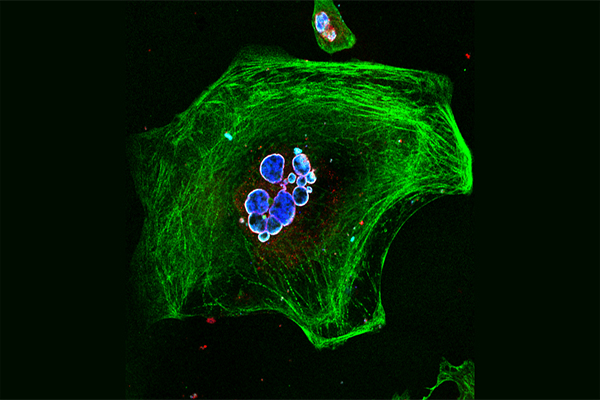Scientists in the Perelman School of Medicine have uncovered the molecular causes of a congenital form of dilated cardiomyopathy (DCM), an often-fatal heart disorder.
This inherited form of DCM—which affects at least several thousand people in the United States at any one time and often causes sudden death or progressive heart failure—is one of multiple congenital disorders known to be caused by inherited mutations in a gene called LMNA. The LMNA gene is active in most cell types, and researchers have not understood why LMNA mutations affect particular organs such as the heart while sparing most other organs and tissues.
In a study published in Cell Stem Cell, the Penn Medicine scientists used stem cell techniques to grow human heart muscle cells containing DCM-causing mutations in LMNA. They found that these mutations severely disrupt the structural organization of DNA in the nucleus of heart muscle cells—but not two other cell types studied—leading to the abnormal activation of non-heart muscle genes.
“We’re now beginning to understand why patients with LMNA mutations have tissue-restricted disorders such as DCM even though the gene is expressed in most cell types,” says study co-senior author Rajan Jain, an assistant professor of cardiovascular medicine and cell and developmental biology at the Perelman School of Medicine.
This story is by Sophie Kluthe. Read more at Penn Medicine News.








